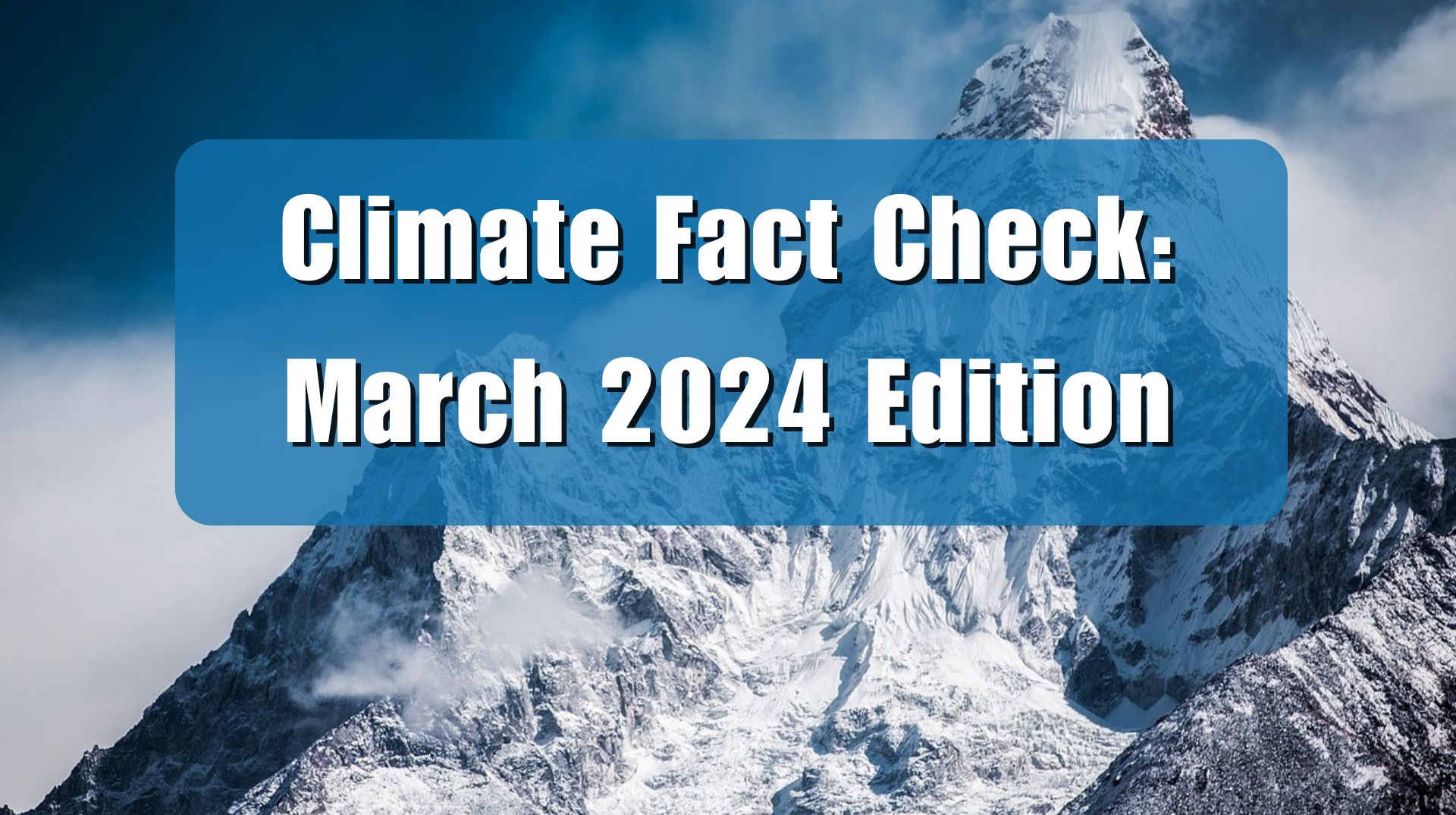An article published by CNBC cites a recent report by the U.S. Treasury Department to claim that climate change is likely to impose “substantial financial costs” on U.S. households in the coming years and decades. This is misinformation. The costs estimates are based on computer models and emission scenarios that are known to be flawed and data on extreme weather trends do not show they are worsening. As a result, there is no evidence climate change has at the present or will in the future resulting in higher household costs.
Annie Nova’s CNBC article, “Climate change could impose ‘substantial financial costs’ on U.S. household finances, Treasury warns,” reports on a new report from the U.S. Treasury Department which claims that climate change will likely result in rising prices, and supply chain and job disruptions due to “climate disasters” resulting from a warming planet. Nova writes:
Climate change is expected to impose “substantial financial costs” on U.S. households in the coming years, according to a new report by the U.S. Department of the Treasury.
Between 2018 and 2022, weather and climate disasters cost more than $617 billion, it found — a record. Within the last year, 13% of Americans reported economic hardship due to severe weather events and disasters.
“Severe flooding, wildfires and extreme heat are imposing significant financial burdens on households across the country,” Graham Steele, assistant secretary for financial institutions at the Treasury Department, said in a statement.
The first thing to note about the Treasury Department’s report is that, although the data set it used did adjust for inflation, it did not adjust for Gross Domestic Product (GDP). As Climate Realism has discussed previously, here and here, for example, data shows that when GDP growth is accounted for, losses to extreme weather events have declined during the recent period of modest warming.
In addition, the data set it used was truncated, only extending back to 1980. This is important because data shows that hurricanes, wildfires, heatwaves, and droughts, for example, were more numerous, powerful, and impacted larger areas of land in the middle and early part of the 20th century than at present. Yet Treasury’s report fails to compare the economic impact on households of events occurring in these earlier time periods, when weather was more severe, with the present time period. Of course, there were fewer people and less development then, but that would likely make the gap between the GDP adjusted economic impacts even larger than they are now.
In addition, as discussed at Climate at a Glance: Hurricane’s, from 2005 through 2017, the year before the cost data cited by the Treasury Department and CNBC spiked, the United States went through the longest period in history without a major hurricane—a hurricane measuring Category 3 or higher—making landfall. The United States also experienced the fewest number of hurricane strikes in any eight year period in recorded history (2009 through 2017). So the Treasury Department staked its claims of huge increases in losses on a comparison between a period of relatively high hurricane activity with the period of the lowest hurricane activity in history. As a result, it is no wonder Treasury’s cost data seems to have risen dramatically. With that cheery picking of time periods for comparison, how could it not do so?
Then there is the use of computer models to project future rising consumer costs and wage losses. As Climate Realism has discussed repeatedly, here, here, and here for, for example, computer models grossly overstate the amount of warming experienced and the weather impacts of that warming, so damage cost estimate based on such models can’t be relied upon—it’s garbage in, garbage out. In addition, impact projections rely on extremely unlikely or even impossible emission scenarios.
What the data clearly shows as discussed in dozens of previous Climate Realism posts, none of the trends for extreme weather events, droughts, floods, heat waves, hurricanes, or wildfires, are rising. Indeed, most have declined over the period of recent modest warming, so climate change can’t be causing the recent increase in disaster related impacts.
The recent rise in costs is due to a few years of bad weather—by the way, its not unusual historically for years of bad weather to run in short streaks due to the effect that large scale cycles like El Nino and La Nina events have on atmospheric trends—and increasing numbers of people moving to places historically prone to natural disasters and building more, and more expensive, properties there. As explored in Climate Realism previously, here, for instance, rising nominal costs from hurricane damage, and the damage from other natural disasters, are due to what Bjorn Lomborg, Ph.D., calls the “expanding bulls-eye effect.”
The Biden administration is deeply committed to combatting climate change, which Biden has asserted, without real evidence by the way, “is a real and present danger.” The Treasury Department is a federal agency in the Biden administration. So it is hardly surprising the Treasury Department would issues an alarming climate report that is short on facts, but long on scary scenarios and supposition. By contrast, the Federal Reserve, an agency independent of the administration has issued repeated reports and statements making it clear that climate change is not increasing banks costs nor does it threaten their continued ability to operate.
Sadly, in its reporting, CNBC ignored the facts, instead choosing to unquestioningly parrot the U.S. Treasury Department’s flawed claims. So much for investigative, independent, journalism.

















Climate change will cost households in the form of forced renewables that the consumer will have to fit the bill for. Thanks NYS